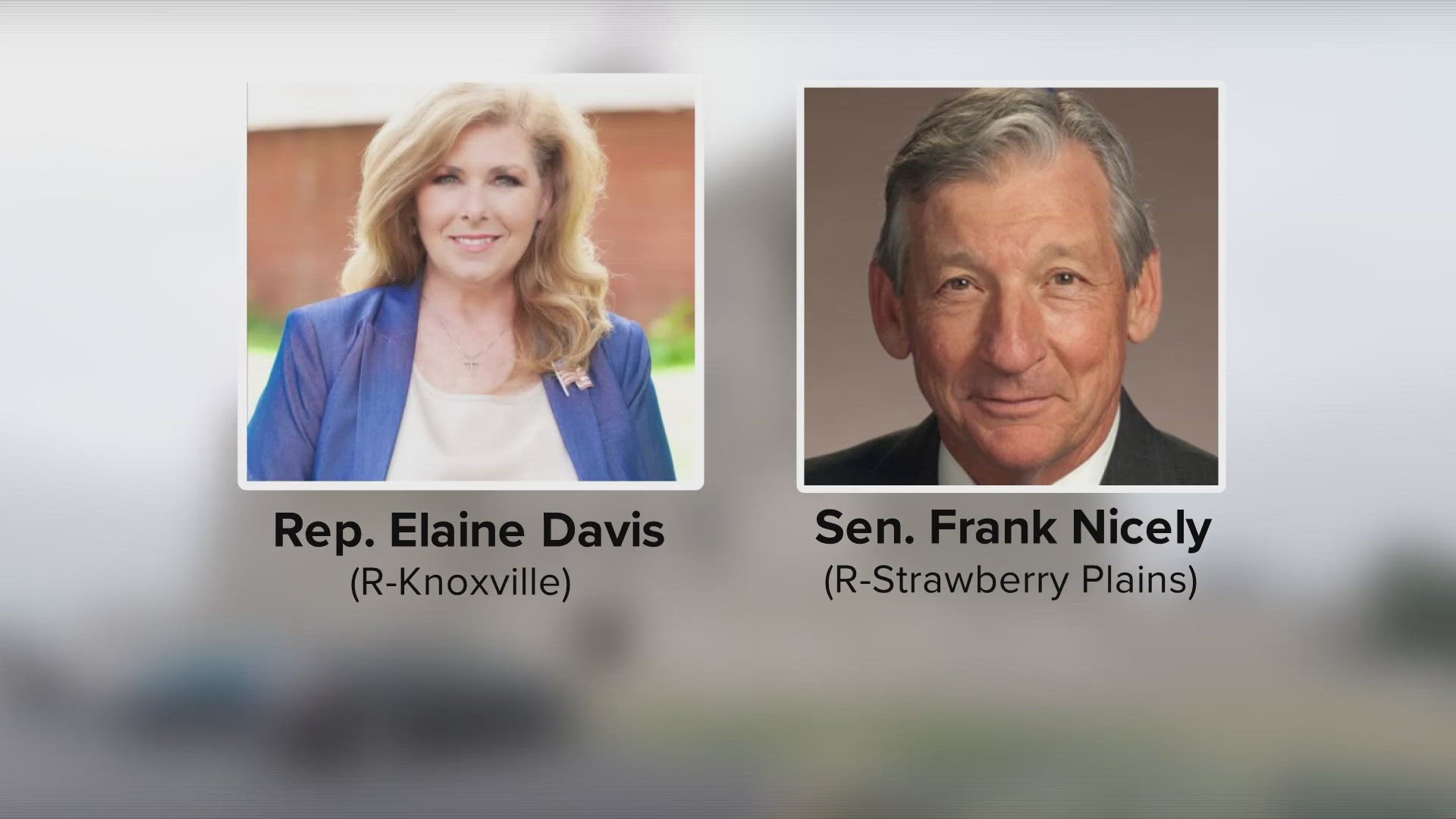KNOXVILLE, Tenn. — Governor Bill Lee signed a bill into law on Friday that changes how people in Knoxville elect city council members. It was amended and takes effect on Jan. 1, 2024.
Currently, when voters head to the polls in Knoxville during city primary elections, they are allowed to vote for candidates only in their district. During the city general elections, however, Knoxville voters are able to vote for candidates in every city council election, including districts outside the one they live in.
Knoxville conducts its citywide, local elections differently from most of Tennessee. State law generally requires cities to hold district-limited elections for city council seats, with the exception of the citywide at-large seats. However, decades ago state lawmakers passed an exception for Knoxville and cities of a similar size to allow voters to elect all of its city council members across all districts on a citywide basis.
The law removes that exception. HB 0817 was introduced by Representative Elaine Davis (R - Knoxville) and in effect, it only impacts Knoxville and Morristown because these are the only two cities that utilize the exemption. Sen. Richard Briggs (R-Knoxville) sponsored the Senate counterpart bill.
Knoxville city elections are held in odd-numbered years in alternating two-year cycles. Districts 1, 2, 3, 4, and 6 are decided in one two-year cycle, and District 5, the three at-large seats, and mayoral elections are decided during the other two-year cycle.
Because the District 5 elections occur in the same cycle as the citywide at-large seats and mayoral elections, voters in that district would only be able to participate in city elections every four years. The other districts would still be able to vote in both two-year cycles: one cycle in their district election, and the other cycle in the at-large and mayoral elections.
Davis does not live in Knoxville but said she felt district nominees could be overruled by voters who live outside the district if the law didn't pass. A statement she released previously is below.
“Our communities deserve to be able to choose which elected officials they want to represent them. Unfortunately, there are places that allow a district’s nominee to be overruled by voters who live outside of the district. This is simply unacceptable and the reason why I was proud to sponsor House Bill 817 to stop this disenfranchisement from continuing. I remain committed to ensuring that Tennessee has the most fair and secure elections in the nation.”
Many Knoxville leaders said they were opposed to the law, and said it felt like an "egregious overstep" by the state legislature. On March 22, the city council unanimously passed a resolution opposing the bill. The resolution also affirmed rights guaranteed through the "home rule" section of the state constitution.
The resolution says that the "home rule" section transferred the state's power to enact legislation affecting Knoxville to the city government. The University of Tennessee Institute for Public Service also says that the "home rule" can be adopted by a city and would prevent the state legislature from passing private acts that apply to that city.
The institute said that in 2016, 14 Tennessee cities and towns had "home rule" charters. They are listed below:
- Chattanooga
- Clinton
- East Ridge
- Etowah
- Johnson City
- Knoxville
- Lenoir City
- Memphis
- Mt. Juliet
- Oak Ridge
- Red Bank
- Sevierville
- Sweetwater
- Whitwell
Knoxville Mayor Indya Kincannon previously said she was disappointed with the state legislature's decision to override their local decision-making.
"For more than 50 years, City residents have rightfully and responsibly managed our own elections and determined a fair and equitable process for choosing our elected City Council representatives," she said in a statement. "Our voter-approved Home Rule Charter calls for district primary winners advancing to a citywide general election, and that has produced Councils that are engaged with and accountable to everyone in the City."
She added that the new law will not take effect until 2024, so the city can "take some time to weigh our options for next steps."
Knoxville Vice Mayor Andrew Roberto also said the city would seek "judicial relief" if Davis' bill became law. His previous statement is below.
The ease at which the will of the people of Knoxville was disregarded and dismissed was shocking and should serve as a wake up call to all home rule cities in Tennessee. Simply put, what happened here is the election system adopted by city voters in a public referendum was overruled, an action neither requested nor supported locally. Even those who think making a change might be worth considering, believe that this is a decision for Knoxville voters.
The ease at which the will of the people of Knoxville was disregarded and dismissed was shocking and should serve as a wake up call to all home rule cities in Tennessee. Simply put, what happened here is the election system adopted by city voters in a public referendum was overruled, an action neither requested nor supported locally. Even those who think making a change might be worth considering, believe that this is a decision for Knoxville voters.

